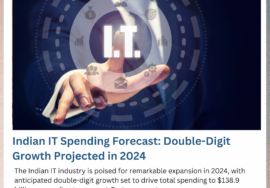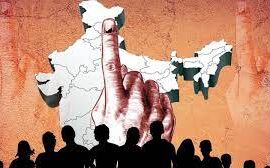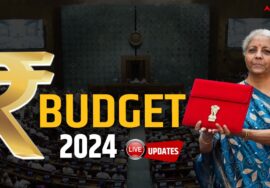Economy to take till 2035 to overcome Covid losses: RBI
[ad_1]
India is likely to take another 13 years to overcome the losses incurred due to the Covid pandemic that hit the country in March 2020, says a Reserve Bank of India (RBI) report.
Taking the actual growth rate of (-) 6.6 per cent for 2020-21, 8.9 per cent for 2021-22 and assuming growth rate of 7.2 per cent for 2022-23, and 7.5 per cent beyond that, India is expected to overcome Covid-19 losses in 2034-35, according to the RBI’s Report on currency and Finance in 2021-22.
The central bank said the output losses for individual years have been worked out to Rs 19.1 lakh crore, Rs 17.1 lakh crore and Rs 16.4 lakh crore for 2020- 21, 2021-22 and 2022-23, respectively.
“The pandemic is not yet over,” the RBI said. A fresh wave of Covid has hit China, South Korea and several parts of Europe. However, various economies are reacting divergently ranging from a no-Covid policy in some jurisdictions (e.g., China, Hong Kong and Bhutan) on the one hand to those with relatively open borders and removal of internal restrictions (e.g., Denmark and the UK), it said.
“In India, the restriction levels are being dynamically calibrated at local levels in response to the evolving situation,” the RBI said. With the ongoing Russia-Ukraine conflict, the downward risks to global and domestic growth are getting accentuated through surge in commodity prices and global supply chain disruptions, it added.
The supply constraints and longer delivery times pushed up shipping costs, commodity prices, thereby intensifying inflationary pressures and threatening the nascent economic recovery across the world. India too felt the pressure from the global supply chain disruptions with the supplier’s delivery time falling to its lowest point of 29.5 in April 2020, the report said.
The blueprint of reforms proposed in the RBI report revolves around seven wheels of economic progress: aggregate demand, aggregate supply, institutions, intermediaries and markets, macroeconomic stability and policy coordination, productivity and technological progress, and structural change and sustainability.
It said a feasible range for medium-term steady state GDP growth in India works out to 6.5–8.5 per cent, consistent with the blueprint of reforms. “Timely rebalancing of monetary and fiscal policies will likely be the first step in this journey,” the RBI report said.
It also said price stability is a necessary precondition for strong and sustainable growth. Reducing general government debt to below 66 per cent of GDP over the next five years is important to secure India’s medium-term growth prospects, the RBI said.
The report suggested structural reforms including enhancing access to litigation free low-cost land, raising the quality of labour through public expenditure on education and health and the Skill India Mission, scaling up R&D activities with an emphasis on innovation and technology, creating an enabling environment for startups and unicorns, rationalisation of subsidies that promote inefficiencies and encouraging urban agglomerations by improving the housing and physical infrastructure.
“Industrial revolution 4.0 and committed transition to a net-zero emission target warrant a policy ecosystem that facilitates provision of adequate access to risk capital and a globally competitive environment for doing business,” it said.
‘Wean away PSU banks from dependence on govt recap’
The RBI said PSU banks should not be dependent on the government for recapitalisation. In the medium term, it is necessary to wean away PSBs from their dependence on government recapitalisation, this will be an important pre-condition to achieve greater privatisation of the sector, said the RBI’s Report on currency and Finance.
To increase the competition in the banking sector and to introduce innovation, the RBI’s ‘on tap’ licensing policy for universal and small finance banks may be used effectively. However, capital infusion should not become a substitute for better governance and risk controls, it said.
[ad_2]
Source link










